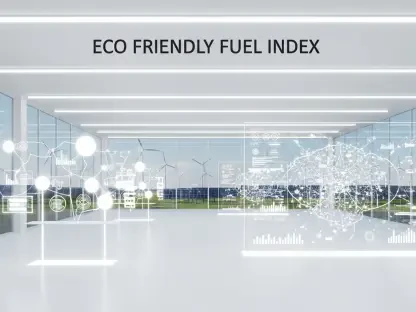Britain grapples with some of the most exorbitant energy prices among leading advanced economies. As manufacturers struggle to maintain competitiveness, the government unveils its first industrial strategy in years. This transformation seeks to revitalize the nation’s economic landscape by implementing solutions to address this critical cost barrier. The spotlight is placed firmly on the imperative of reducing electricity prices to bolster investment capabilities and enhance industrial competitiveness. The analysis below delves into the structural intricacies and intended outcomes of this strategic initiative, highlighting the projected ramifications for Britain’s manufacturing prowess and economic sustainability.
Analyzing Industrial Energy Costs and Their Impact
Energy costs exert significant pressure on Britain’s manufacturing sector, a key contributor to the nation’s economic output. Manufacturers face the costly burden of policy-driven expenses that inflate energy prices. As climate change commitments translate into levies and tariffs, they inadvertently elevate the overall cost of energy. The Confederation of British Industry and industry body Make UK argue that aligning domestic energy prices with international norms is crucial for maintaining competitiveness. This alignment seeks to create a conducive environment for manufacturing enterprises to thrive, ensuring that these businesses can effectively compete in global markets without being encumbered by avoidable costs.
Market Dynamics and Strategic Adjustments
Strategic adjustments within Britain’s industrial framework aim to mitigate the impact of current market dynamics. By removing certain levies and adjusting climate tariffs, the government intends to ease the financial strain on industrial players. Comparative analyses with other major economies reveal potential advantages in terms of increased investment and employment growth, should the costs be effectively controlled. Balancing these financial recalibrations with decarbonization objectives remains a complex challenge that policymakers must address. Reforming energy policies, both in terms of cost and sustainability, offers a dual pathway toward improved economic health and environmental stewardship.
Adapting to Diverse Market Variabilities
A crucial facet of the new strategy involves addressing regional disparities and adapting to market variabilities. Energy costs differ substantially across Britain’s varied landscapes, due to factors such as local resource availability and infrastructure constraints. Recognizing these differences is vital for crafting effective, location-specific solutions. Targeted investments and adaptive methodologies can resolve regional bottlenecks, facilitating streamlined energy distribution and consumption nationwide. This approach ensures that Britain’s manufacturing sector can uniformly benefit from reduced energy expenses.
Technological Innovation as a Future Catalyst
Emerging technologies hold the promise of reshaping the industrial energy landscape. Innovations in renewable resources, advanced storage technologies, and digital energy management present opportunities to further decrease costs. The ongoing evolution of market conditions, coupled with regulatory changes, points to potential shifts in how energy is priced and consumed. Future-proofing industries requires constant technological advancements, with an eye on advancing competitiveness and sustainability.
Strategic Insights for Effective Industry Navigation
Industries adjusting to the new industrial strategy will benefit from active engagement with policymakers and the adoption of innovative practices. Understanding the broad landscape of policy changes and leveraging energy-efficient technologies can transform operational costs. Additionally, learning from the experiences of international counterparts provides valuable insights for optimizing energy consumption effectively. By adopting these strategies, stakeholders can navigate evolving industrial conditions with greater confidence and strategic foresight, ensuring continued growth and prosperity.
Reflection on Findings and Strategic Considerations
In reflecting upon the analysis, it is evident that addressing high energy prices has been an essential step toward revitalizing Britain’s industrial capabilities. This strategy was not solely about cost reduction but signified a broader commitment to fostering industrial growth and economic resilience. By aligning energy policies with international standards, Britain positioned itself to potentially enhance its manufacturing prowess. Practical steps included advocating industrial-friendly policies and embracing technological innovations. As industries continued to embark on this transformative journey, strategic foresight remained crucial for cultivating future opportunities rich in sustainable growth and competitiveness.









